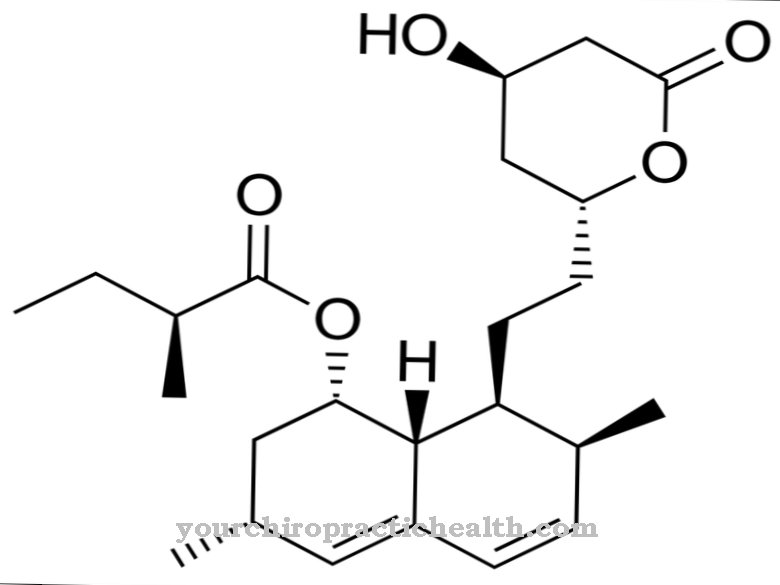The Medicine Abarelix is a cytostatic agent. It is used under the trade name Plenaxis® for the treatment of advanced or already metastatic hormone-dependent prostate carcinomas where other therapies no longer help. Abarelix was approved in Germany in 2008.
What is Abarelix?

Abarelix belongs to the group of gonadotropin-releasing hormone antagonists (GnRH antagonists) and is a synthetic decapeptide. It represents an alternative to surgical castration or therapy with GnRH analogues. Unlike GnRH analogues, abarelix does not cause an increase in the hormone testosterone, even if only briefly.
Such an increase can lead to an exacerbation of symptoms - for example, symptomatic bone metastases with spinal canal compression. When abarelix is administered, however, an immediate, rapid and reliable decrease in the concentration of serum testosterone to below 0.2 ng / ml can be observed.
The drug is available as a powder and as a solvent for making a suspension for injection.
Long-term experience with abarelix therapy is currently only available to a limited extent. Above all, there are still no more precise results regarding allergic reactions of the immediate type and cardiac side effects.
Pharmacological effect
During therapy with abarelix, the medicine is injected intramuscularly. Abarelix acts as a competitive receptor antagonist in competition with GnRH for the relevant receptors for testosterone production. The drug blocks the receptors responsible for this. The testosterone production then stops immediately.
Since this works so well without an initial brief increase in testosterone levels, the combination with anti-androgens is not necessary. After the first injection, the testosterone level drops to the castration level in around 70% of patients within a few days - up to a week. As a result of a second injection on the 15th day of therapy with abarelix, the desired target value was found in almost all patients. Compared to other drugs, Abarelix not only works intensely, but also much faster.
As with surgical castration, drug therapy with abarelix can lead to the following phenomena due to the greatly reduced testosterone level: impotence, hot flashes, weight gain and lack of strength.
Medical application & use
Abarelix is a new type of drug for advanced and already metastatic prostate cancer. The drug is particularly recommended when other forms of therapy no longer promise success.
Abarelix drastically reduces testosterone levels and this in connection with a rapid and permanent control of the prostate tumor. It lowers the PSA level and reduces the volume of the prostate. Unlike conventional GnRH agonists, the GnRH antigonist Abarelix does not initially lead to a short-term increase in testosterone levels.
The agent controls the desired effect immediately after the first intramuscular injection. Hormone-sensitive prostate carcinomas respond very well to medication with abarelix. In advanced carcinoma of the prostate, the drug is an excellent supplement or even an alternative to radiation or surgery.
After the injection has been given, the patient should be carefully observed for at least 30 minutes, as abarelix can cause an anaphylactoid reaction in just under 4% of those treated. The immediate treatment of a possible life-threatening allergic reaction must be safely guaranteed.
In the preliminary discussion with the patient about therapy with abarelix, it should be pointed out that the effect is reversible after the end of treatment with abarelix. A rapid normalization of testosterone levels can even be expected after drug discontinuation, since Abarelix does not change the receptors. Concomitant symptoms such as hot flashes also quickly subside.
If necessary, another therapy with Abarelix can be started later.
Risks & side effects
In very rare cases within 30 minutes of an abarelix injection, there may be a severe systemic allergic reaction of the immediate type. Symptoms that occur are itching, urticaria, hypotension and possibly syncope.
Other possible side effects include disorders of the gastrointestinal tract and more frequent infections of the respiratory tract.
Abarelix is contraindicated in long QT syndrome of the heart and in functional disorders of the kidneys and liver. Likewise, like all GnRH antagonists, Abarelix must not be prescribed after a surgical castration.



























